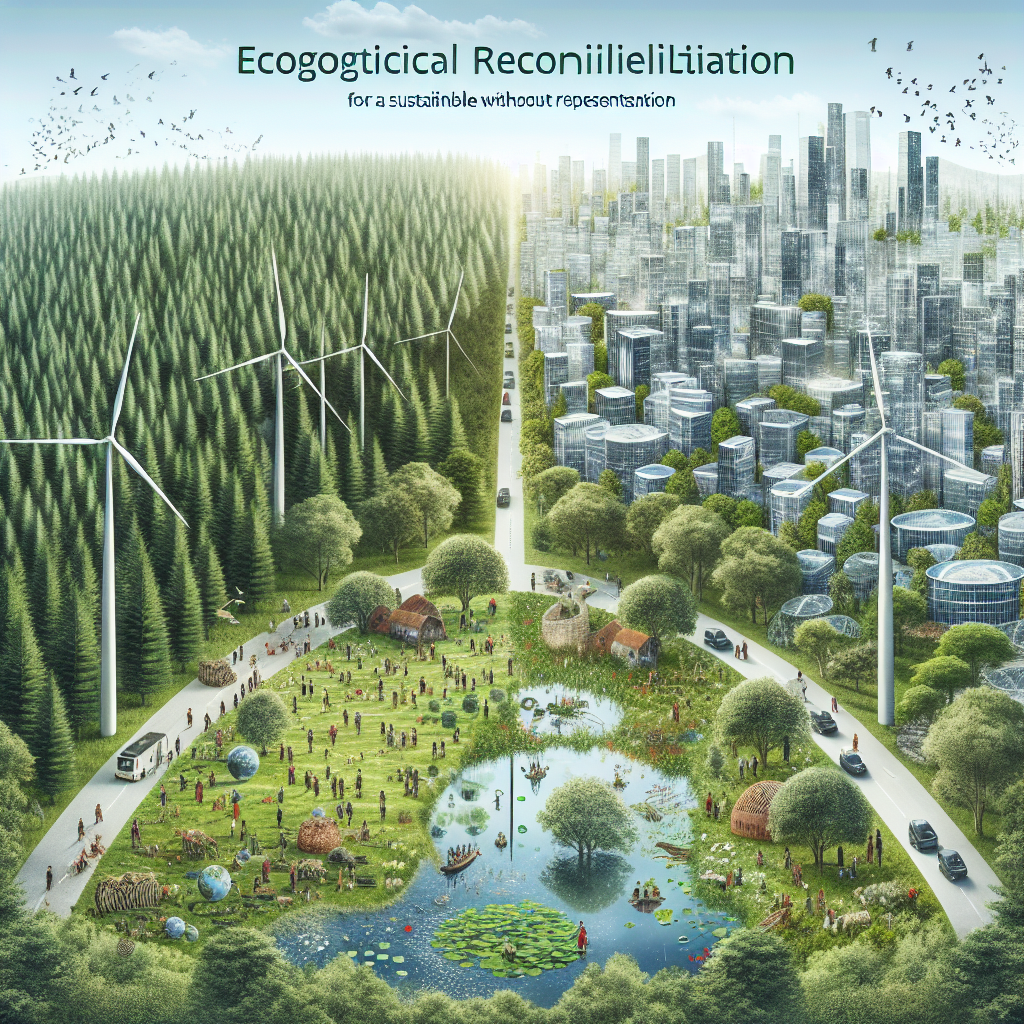Devotional: Ecological Reconciliation: Bridging the Divide Between Conservation and Community for a Sustainable Future
Scripture Reading: Genesis 2:15 (NIV) – “The Lord God took the man and put him in the Garden of Eden to work it and take care of it.”
Reflection:
In the beginning, God crafted a beautiful world, rich with diversity and purpose. He entrusted humanity with the sacred duty of stewardship over creation. Yet, as we journey through time, we find ourselves split between the tension of conservation and community. Often, the ideals of protecting our planet come into conflict with the needs of communities reliant on natural resources for their survival.
Ecological reconciliation invites us to heal this divide. It reminds us that communities and ecosystems are not opposing forces but are intertwined and interdependent. A thriving environment supports healthy communities, and vibrant communities can implement sustainable practices that protect ecosystems.
God’s fingerprints are evident within the dance of creation—each creature and community reflects His design and purpose. When we see nature’s beauty, we encounter God’s artistry, and when we engage with our neighbor’s needs, we express His compassion.
Educate Yourself:
To foster ecological reconciliation, we must recognize the problems we face:
- Disconnection: Many communities feel alienated from nature, leading to over-exploitation of resources.
- Inequity: Environmental degradation often disproportionately affects marginalized communities who rely on their surroundings for food and livelihood.
- Lack of Collaboration: Conservation efforts sometimes exclude local voices, disregarding valuable traditional knowledge that can enhance sustainability.
Action Steps:
Here are ways we can work towards ecological reconciliation:
- Learn and Share: Educate yourself about local ecosystems, conservation efforts, and the communities that depend on them. Share insights with friends and family to cultivate awareness.
- Participate in Local Initiatives: Engage in local conservation projects and community initiatives. Join tree-planting campaigns, community gardens, or wildlife preservation activities. Understand the importance of inclusivity; ensure that marginalized voices and traditional ecological knowledge are part of the conversation.
- Advocate for Policy Changes: Write to local authorities about creating policies that prioritize sustainable development, equitable resource distribution, and the inclusion of local communities in environmental decision-making.
- Practice Gratitude: Each day, take a moment to reflect on creation – the sun that warms, the rain that nourishes, and the soil that sustains. Thank God for these gifts and consider ways you can share these blessings with others.
Prayer:
Heavenly Father, thank You for the gift of creation and for the people who inhabit this Earth alongside us. May we open our eyes to Your fingerprints in our ecosystems and our communities. Help us to bridge the divide between conservation and community, recognizing that stewardship is a shared responsibility. Empower us to act with compassion, integrity, and love as we seek to create a sustainable future. Guide us in our actions, that we might see Your kingdom on Earth as it is in heaven. Amen.
Conclusion:
Ecological reconciliation is not just an ideal; it is a journey—a beautiful tapestry where the threads of nature and humanity are woven together. As we strive for sustainability, may we remember that we carry the essence of God’s love within us. Let us live in harmony with creation, honoring both the earth and the communities that depend on it so that future generations may thrive in the beauty God has created.
Explore and dig up answers yourself with our BGodInspired Bible Tools! Be careful – each interaction is like a new treasure hunt… you can get lost for hours 🙂


